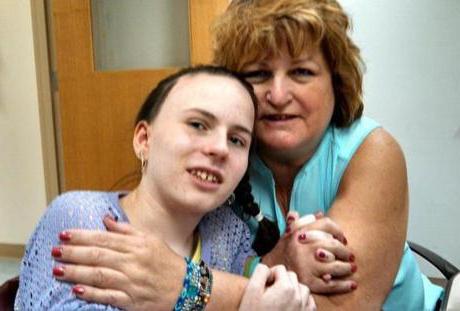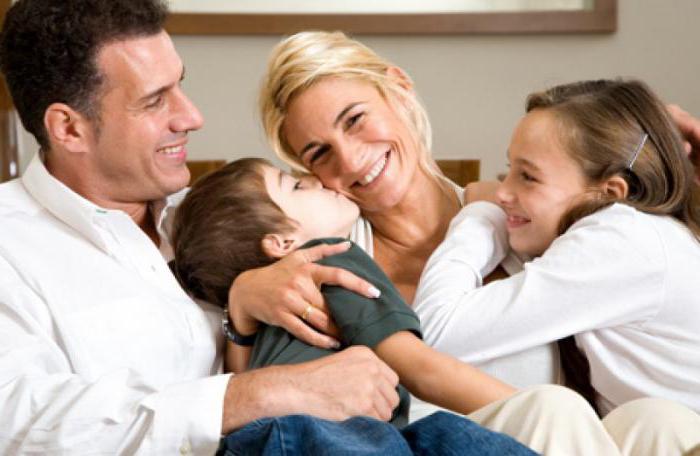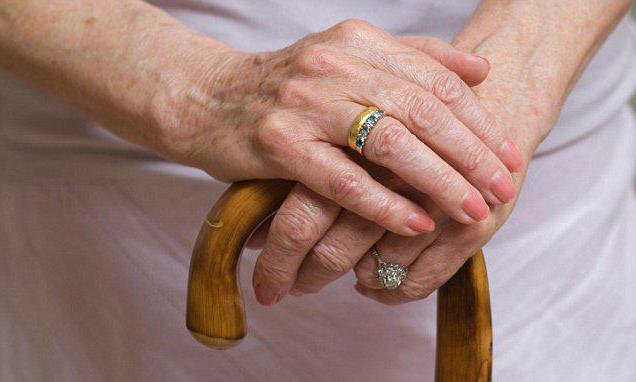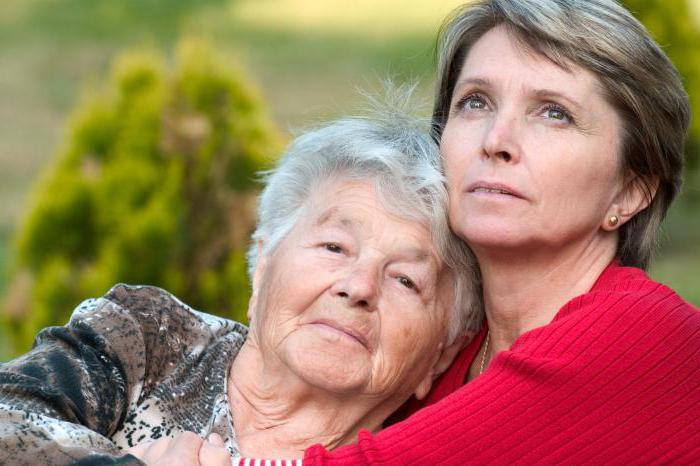Guardianship and trusteeship are ways to ensure the protection of the rights and interests of persons who, for one reason or another, cannot do it on their own. Here we can talk about both minors and legally incapable adult citizens. They can be established in relation to those children who have lost their parents or if the latter are deprived of their rights.
How do these concepts differ?
For many people, guardianship and trusteeship are identical concepts, but in reality they are somewhat different from each other. Let's find out what is the difference between them.

Custody is a form of protection for minors and those whom the judicial authorities have recognized as incapable due to mental health conditions. A person representing their interests has the right to make all the necessary transactions on their behalf.
And trusteeship is the opportunity to speak in various instances on behalf of minor children 14-18 years old and those who have been recognized as legally incompetent due to drug or alcohol addiction. In this case, we are talking about committing those actions or transactions that the wards are not able to do on their own. Also, the trustee must protect them from abuse by third parties.
These two types of social protection cannot exist simultaneously in relation to one person. Guardianship and trusteeship are distinguished by the presence or absence of a person's legal capacity. And in the first case, the citizen in charge of the ward must still take care of his state of health and provide him with good nutrition and treatment.
The legislative framework
Guardianship is a state-regulated process, as is guardianship. There are a number of rules for their implementation, which is provided for by the Civil Code and the legislative framework on family and marriage.

In Russia, in 2008, a reform of the system of relevant bodies took place. At the same time, the Federal Law was adopted, which is devoted entirely to these two issues. The fact is that before there was no single institution that would regulate the processes of guardianship and guardianship at the state level. This document provided the following features:
- it is possible to conclude on a free basis an agreement with a guardian or trustee on the performance of their services;
- guardianship and guardianship of children may be carried out by their adult relatives, in particular grandparents, who have an advantage over other persons;
- parents have the right, for good reason, to temporarily not perform their duties in relation to the child, indicating in the corresponding statement the temporary guardian;
- in the event of death, a single mother or father may appoint a guardian in advance by submitting an application to the appropriate guardianship authorities;
- one ward may have several guardians;
- if it is necessary to appoint a trustee for an incapacitated citizen urgently, the procedure has a simplified procedure;
- a person over 14 years of age has the right to appoint a guardian on his own in a statement.
There are special authorities that regulate these issues. So, special guardianship bodies work with courts and housing companies, they are able to control the activities of guardians.
Executive bodies
Such structures are an intermediate link between the adopted child and his new parents, their representatives should be responsible for ensuring that these people educate him and provide all necessary benefits. If they do not, they are deprived of their rights.Such bodies are the executive branch with regard to family matters of the kind under consideration. In some regions, there is even a Ministry of Custody and Guardianship, which is designed to protect the rights of orphans.
Adoption: what is needed for this?
What is guardianship of a child, we found out, we will move on to the issue of adoption, that is, the admission of a minor to his family as his full member. In this case, adults are fully responsible for it in all areas.
Despite the improved legislative framework and the existence of appropriate structures, it is often not so simple to become foster parents. Very often they encounter serious bureaucratic obstacles that interfere with the execution of this procedure.

Of course, sometimes this is due to the fact that the package of documents was not fully provided. It should include the following:
- passports
- statement;
- Photo;
- marriage certificate;
- autobiographies of potential guardians;
- medical certificate of the health status of each family member;
- consent to adoption from biological parents, if they are alive and recognized as capable;
- a document certified by other family members about the possibility of living together with a child;
- certificates of employment and income;
- characterization of living conditions and room passport.
Who has the right to guardianship and trusteeship?
According to the Civil Code, the following persons have the right to take responsibility for raising a child:
- adult and capable persons who have not previously been deprived of parental rights, who are not addicted to drugs and alcohol, and who do not have diseases that may impede the responsibility for caring for a child;
- social and medical institutions;
- guardianship and trusteeship bodies - only on a temporary basis;
- citizens who have concluded a paid contract with social structures on raising a child.
If we are talking about issuing guardianship over an adult, this happens on the basis of an appropriate court decision.
Guardian Rights
This category of citizens after drawing up the relevant documents, according to which, it is responsible for the life of the ward, has the following responsibilities:
- take care of the child’s maintenance, care for them, treat and protect their rights and freedoms;
- Accommodation must be shared, separately they can live after the child is 16 years old;
- guardians are required to distribute the income of their ward (for example, a scholarship or allowance) only in his interests and with the consent of the relevant authorities.
Relief
The trustee or guardian ceases to be considered as such in the following cases:
- if the child was returned to parents or adopted by other people;
- if the ward was given under guardianship and trusteeship of certain structures;
- with the mutual consent of the parties and the presence of valid reasons, the trustee or guardian may be removed from his duties if they are improperly performed, if the rights are used for their own mercenary purposes, or if a child or legally incapable person is left without the necessary help.
Representation obligations
The duties of guardians and trustees are also somewhat different from each other. So, in the first case, they completely replace their wards in the commission of certain transactions and are fully responsible for their actions.

But the trustee has more limited responsibilities. So, transactions on behalf of a child or an incapacitated person, he makes only when they can not conduct them themselves. Also, in the exercise of their rights, he only provides assistance, and does not become a trusted entity.In addition, he is not responsible for the transaction on behalf of his ward and cannot be his legal representative in material and civil relations of a legal nature.
Right to Property Management
Guardians and trustees have the authority to manage only that share of their ward's possessions, which was not transferred to trust and was not separated from the rest for these needs. They can manage the property, provided that there is a need for it, as well as when it comes to real estate or values.

After that, the guardianship authorities must conclude an appropriate agreement with the potential guardian. Both individuals and legal entities can play its role. If such a document on property management was compiled on a paid basis, then all actions will have a cost.
The grounds for terminating it are prescribed in the Civil Code. Also trust management cannot end with an automatic transition from one form of social protection to another.
Patronage - what is it?
Social custody and guardianship is, in particular, providing assistance to adults and capable persons who, due to health reasons, cannot perform certain actions and protect their rights. This species is called patronage. This type of assistance is not appointed by the relevant authorities, but only with the consent of the ward, and also stops at his request. Patronage is provided both on a paid and free basis; an assistant to a temporarily incapacitated citizen can receive remuneration from him in the form of financial resources or the provision of counter services in which he is competent regardless of his state of health.
 This type of assistance can be assigned if a person actually has no other assistants, even if he has capable children and other relatives, but they cannot be near for various reasons.
This type of assistance can be assigned if a person actually has no other assistants, even if he has capable children and other relatives, but they cannot be near for various reasons.
Helping the elderly
In our country, there is also social guardianship, when elderly people with disabilities act as wards. They are settled in separate houses with a convenient infrastructure for them, where they are regularly cared for. Such homes can be called a great alternative to nursing homes.
 There, old people can live in families, as in an ordinary apartment, except that at any moment they can get everything they need.
There, old people can live in families, as in an ordinary apartment, except that at any moment they can get everything they need.
As you can see, the institution of social assistance in Russia has many forms and depends on the age, physical capabilities and health status of those in need of such protection. If necessary, state structures and their representatives can assist in one way or another minors, legally incompetent and senior citizens.
